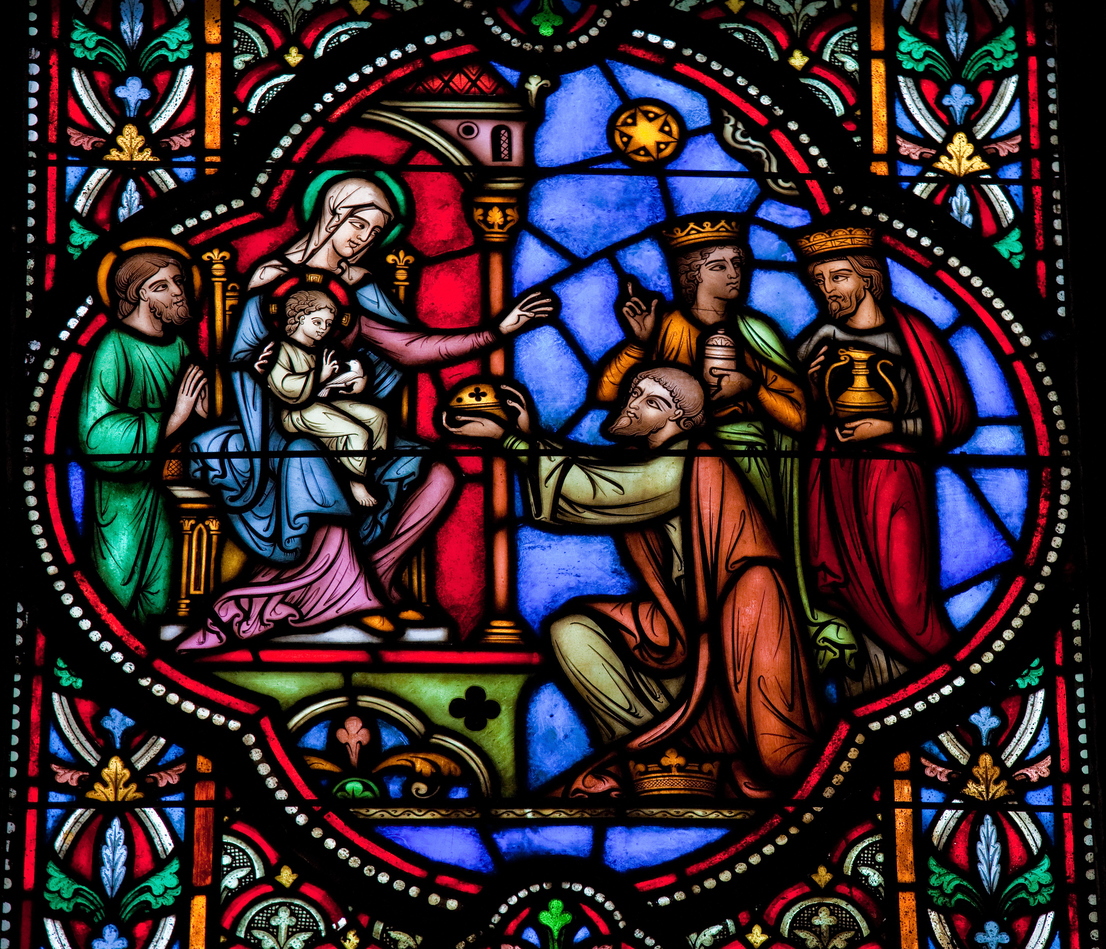
The Epiphany of the Lord
Today is the Solemnity of the Epiphany of the Lord. On the general calendar, it is the day following the Twelve Days of Christmas (December 25–January 5). On the liturgical calendar, it is a feast day, and holy day of obligation, that celebrates three ways in which the divinity of Jesus was revealed to the world. Those revelatory events are:
- The adoration of the Baby Jesus by the Magi
- The baptism of Jesus by John the Baptist
- The miracle at the wedding feast at Cana
The word epiphany comes from the Greek epiphainen, which means “a showing, appearance, or revelation.” It was used by the Greeks to describe a “theophany,” the appearance of God in the flesh. And that is exactly what happened during these three events: the divine nature of Jesus was revealed to the world.
The Adoration of the Magi
The Nativity recounts how the shepherds in the field, representing the people of Israel, were made aware of the birth of Jesus. It was the visitation by the Three Wise Men, however, that symbolizes the universal purpose of his birth. Through the adoration of the Magi, Jesus’s divinity is revealed to the Gentiles, and this is integral to the message of the Incarnation—that he is not for the Jewish nation alone but for all nations.
By most scholarly accounts, the Magi were Persian astrologers with a deep knowledge of Hebrew Scripture, thus knowing of the prophecies of the coming Messiah. The supernatural events that led these representatives of the Gentiles to Bethlehem—that is, the star—parallels the supernatural circumstances of Jesus’ conception. Both were divinely driven, and both served to reveal Jesus to Jews and Gentiles to share the message of a universal salvation.
The Baptism of Jesus
During his baptism in the Jordan River by John the Baptist, Jesus’ divine nature is declared to the world by the ultimate authority—God. As Jesus arises from the water, the Holy Spirit descended on him and a voice from Heaven said, “This is my beloved Son, with whom I am well pleased.” (Mt 3:17)
The Lord had foretold to John that, “He on whom you see the Spirit descend and remain, this is he who baptizes with the Holy Spirit.” (Jn 1:32–33) This event confirmed for John what he had been told and believed—that Jesus was “the Son of God.” The next day John again described Jesus to others as “the Lamb of God” and encouraged his own disciples to follow him.
The theophany during the baptism closes the Old Testament era and opens the New Testament era. It fulfills past prophecies and declares, in God’s own words, that the Messiah has arrived.
The Miracle at Cana
In the previous two events, the divine nature of Jesus has been revealed to all nations and confirmed by God. The miracle at the wedding at Cana clearly shows Jesus’ divinity when he performs his first miracle.
Female guests at parties and celebrations have always assisted the hostess with cooking and serving duties. Such was the case at the wedding at Cana. Mary was helping in the kitchen when she became aware that the wine was running out. A shortfall of alcohol would humiliate the hosts, so Mary approached Jesus and told him, “They have no wine.” (Jn 2:3)
Jesus told the servants to fill six stone jars with water. Once the jars were filled to the brim, Jesus then told the servants, “Now draw some out, and take it to the steward of the feast.” (Jn 2:8) When the servants drew out the water for the steward to taste, it had been changed into wine. This first miracle confirmed their belief that Jesus was the Messiah. It was an effect of grace. Jesus not only provided wine to forestall its running out, but he had also provided a super-abundance of it. As John notes in his Gospel, “This, the first of his signs, Jesus did at Cana in Galilee, and manifested his glory.” (Jn 2:11)
Today’s Meditation
As we celebrate the Epiphany of the Lord today, let us meditate on the three ways the divinity of Jesus was made known to the world” through the adoration of the Magi, through his baptism in the Jordan River; and through the miracle at the wedding feast at Cana.
